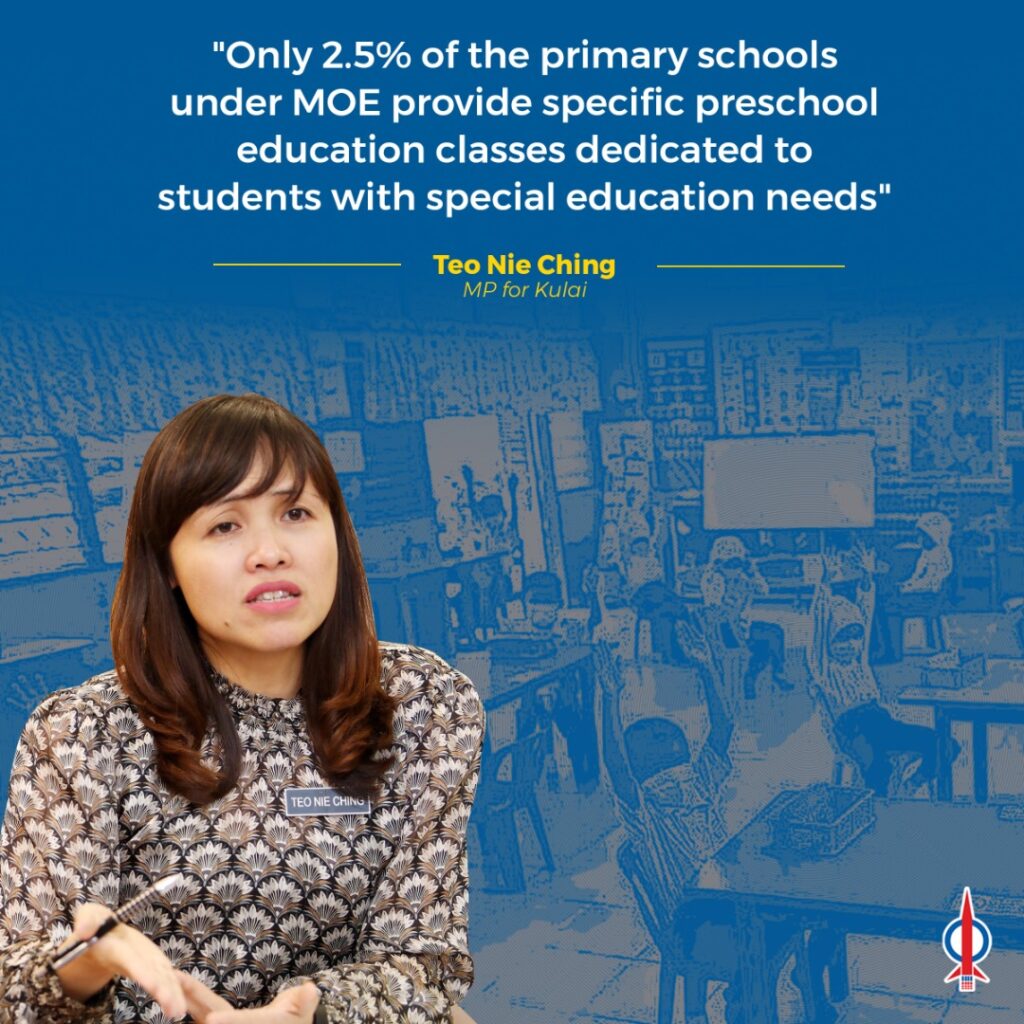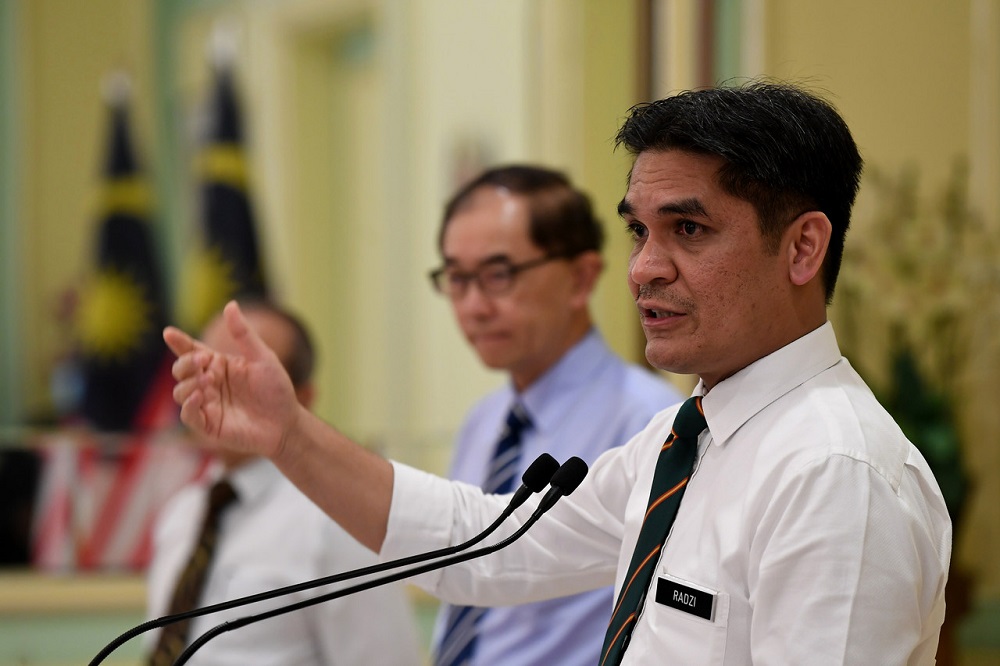
UNESCO estimates that on average, 10% of the population in developing countries have special needs. In Malaysia, only 1% of the population has been identified as having special education needs, versus this global estimated average of 10%. This suggests an underestimation of the number of special education needs children in the country.
Currently, there are about 780,000 kids in preschool education. If we adopt the estimation of UNESCO, there should be 78,000 children with special needs among them. However, where are these children with special needs between the age of 5 and 6 receiving their preschool education?
According to a parliamentary reply from the Senior Minister of Education dated March 24, 2022, out of 7,700 primary schools, there are only 2.5% or 192 primary schools that offer specific preschool education classes dedicated to special education needs students and the total number of students with special education needs enrolled with the Ministry of Education is merely 1,132.
While some of the students with special needs will be receiving their preschool education in private education institutions, the fees charged by these institutions are rather high for some, and completely unaffordable for many. That’s why it is pertinent for the Ministry of Education to expand its special education preschool classes in all the primary schools.
Early identification is crucial for kids with special needs as early intervention and treatment of developmental issues are their best chance of having the greatest improvement. In Malaysia Education Blueprint 2013 – 2025, MOE is tasked to develop a curriculum that allows for adaptation to the specific requirements of special education needs children, and to equip them with life skills in preparation for adult / working life.

To achieve that, MOE also needs to ensure there are sufficient number of well-trained teachers, specialists and resource personnel to aid and educate special education needs students.
Covid-19 pandemic and school closure disrupt the learning and development of many children, kids with special needs are not spared and in fact more adversely affected.
Article 28 of Malaysia’s Persons with Disabilities Act 2008 affirms that special needs children are to be given the necessary support to facilitate their “full and equal participation in education.” In other words, those with special needs must have access to mainstream schools and mainstream schools with an inclusive orientation are the most effective means of overcoming discriminatory attitudes, creating welcoming communities and building an inclusive society. The Ministry of Education should adopt the international best practices and be more committed to enrolling more students with special needs in preschool education.
Teo Nie Ching
Kulai Member of Parliament
DAP National Publicity Secretary



